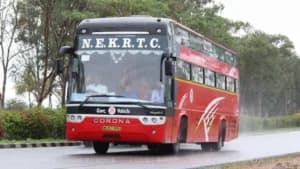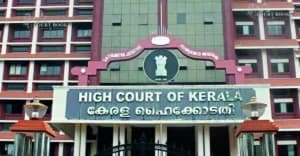The Bombay High Court has clarified that the amalgamation of two public trusts under Section 50A(2) of the Maharashtra Public Trusts Act, 1950 does not require the publication of notice in the Official Gazette as a jurisdictional condition. The Court held that such publication is merely a procedural step, not a requirement for jurisdiction.
The Division Bench led by Justice Sharmila U. Deshmukh ruled on an appeal filed in Rizvi Education Society v. The Brihan Mumbai Municipal Corporation, involving the proposed amalgamation of Rizvi Education Society and Kailas Seva Sadan Trust.
Read Also:-Bombay High Court: No Interim Relief Under Arbitration Act If Party Accepts Termination of Contract
"It is the formation of a prima facie opinion that the proposed amalgamation is in the interest of proper management or administration of trusts which is the jurisdictional fact for the Assistant Charity Commissioner to proceed further," stated the Court.
The case began when the trustees of Rizvi Education Society and Kailas Seva Sadan Trust filed an application before the Assistant Charity Commissioner under Section 50A(2), seeking approval for the amalgamation and sanctioning of a draft common scheme. Kailas Seva Sadan Trust had earlier entered into an Agreement to Sell immovable property to the Brihan Mumbai Municipal Corporation (BMC), which was sanctioned under Section 36 of the Trusts Act.
The Assistant Charity Commissioner approved the scheme and ordered the amalgamation. However, the BMC challenged this order by filing a Charity Application before the City Civil Court under Section 72 of the Act. The City Civil Court allowed the application and remanded the case back to the Assistant Charity Commissioner. On remand, the Assistant Charity Commissioner again approved the amalgamation.
The BMC once more challenged this decision before the City Civil Court, which again ruled in its favour. Aggrieved by this, the Rizvi Education Society approached the High Court in appeal.
The appellant argued that BMC, as a party to the property transaction and not a trustee or interested party in internal trust management, lacked standing to object. The appellant also contended that non-publication of notice in the Official Gazette could not be used to invalidate the process since the BMC had been given a hearing before the Assistant Charity Commissioner. Moreover, if there was a procedural lapse, the appropriate remedy would have been a remand, not cancellation of the entire scheme.
On the other hand, the BMC and the Assistant Charity Commissioner maintained that orders under Section 50A(2) can only be passed after the Charity Commissioner forms a subjective opinion and follows proper procedure. They argued that Section 50A(1) and 50A(2) are separate provisions and requirements under one cannot be imported into the other.
The objections of the BMC are not germane to an inquiry under Section 50A(2). These objections appear to be from a party aggrieved by the amalgamation order, not from a party concerned with ensuring that the interests of the Trusts are better served independently, the Court said.
The High Court found fault with the City Civil Court's approach. It noted that one of the objectives of Rizvi Education Society was to provide medical relief, which was aligned with the objects of Kailas Seva Sadan Trust. The Court further remarked that keeping Kailas Seva Sadan Trust alive, especially when it was no longer functional and struggling to recover its only property, was not in the interest of the Trust.
"The direction to continue the existence of Kailas Seva Sadan Trust, which is now defunct and struggling financially, cannot be said to be in the best interest of the Trust," observed the Bench.
Ultimately, the High Court allowed the appeal, holding that the amalgamation was valid and the procedural challenge regarding publication was not sufficient to overturn the decision made under Section 50A(2).
Case Title: Rizvi Education Society v. The Brihan Mumbai Municipal Corporation
Case Number: First Appeal No. 1156 of 2015
Judgment Date: April 22, 2024
Appellant's Counsel: Mayur Khandeparkar, Anand Pai, Mahesh R. Mishra, Mr. Arun
Respondent's Counsel: Narendra Walavalkar














